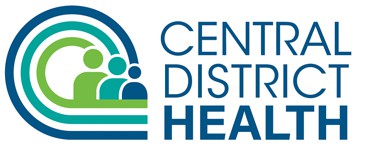Southwest Idaho, September 5, 2024 – Central District Health and Southwest District Health (SWDH) advise that there have been 171 cases of pertussis (aka. whooping cough) reported in the region so far this year. This is a sharp increase compared to 10 cases total for 2023.
Within the Central District, Ada County has reported 117 cases, and one case each in Elmore and Valley Counties. Within the Southwest District, Canyon County has reported 49 cases and three in Payette County for a total of 52 cases this year so far. 67% of these cases are among children under 19 years of age.
The health districts recommend that community members be cautious in order to reduce the spread of the disease. Wash your hands, cough into your arm and talk to your physician if you or your family experience a cough, runny nose, congestion or fever.
“We are deeply concerned by the significant increase in pertussis cases across Southwest Idaho this year,” said Lekshmi Venugopal, SWDH staff epidemiologist. “The resurgence of cases following the reopening of schools underscores the need for continued vigilance. Whooping cough, though it may start like a common cold, can lead to prolonged illness and severe complications, particularly in infants and those with existing health conditions.”
Pertussis is also known as whooping cough due to the peculiar high-pitched “whoop” sounds made after the person inhales at the end of the coughing fit. Other symptoms may include a runny nose, congestion, or fever, but most people recognize it from the cough. People may develop rapid, violent and uncontrollable coughing fits and some may vomit after such fits due to the severity of the cough. The cough can last for months or return months after the illness first started. Pertussis is also more severe in babies and children and can cause difficulty breathing.
How does pertussis spread?
The illness is caused by a bacterium, Bordetella pertussis, which is spread from person to person through the air after someone who has the bacteria coughs or sneezes. If not diagnosed and treated with antibiotics, an individual can spread the disease for at least two weeks after their cough starts.
Individuals who have known exposure to pertussis can also take antibiotics before they get sick to help prevent the illness. If you believe you have pertussis or have been exposed to pertussis, please contact your healthcare provider to discuss testing and treatment.
Is pertussis preventable or treatable?
Pertussis is both preventable and treatable. There is an immunization which may protect an individual from becoming ill or severely ill.
The CDC recommends two different kinds of immunizations: DTap and Tdap. DTap is intended for children & babies two months to seven years old and is a series of five shots. Tdap is intended for anyone seven years or older and is usually given every five to 10 years as a booster. Both immunizations protect against Pertussis, Tetanus and Diphtheria.
The immunization protects 98% of children within the year following their last dose, but immunity begins to wane after about four or five years, so boosters offer added protection. According to the CDC, most people experience only mild side effects, like soreness at the injection site or fever. Although rare, serious reactions such as seizures or high fever may occur. Rarely, DTaP immunization is followed by swelling of the entire arm or leg especially in older children after the 4th or 5th dose.
Pregnant women should also talk to their healthcare provider about getting immunized during pregnancy because it can give immunity to the newborn baby until they are old enough to get immunized themselves. Talk with your healthcare provider about your immunization history to see if you may need a booster.
SWDH offers the Tdap and pediatric DTap immunizations at their Caldwell office.
CDH offers the Tdap and pediatric DTap immunizations by appointment at their Boise office.
Media Contacts:
Monique Evancic, SWDH
208-800-1262
Monique.Evancic@phd3.idaho.gov
Maria Ortega, CDH
208-327-8639
Southwest District Health is one of seven public health districts throughout Idaho established to protect and promote the health and wellness of those who live, work, and play in our region. We proudly serve Adams, Canyon, Gem, Owyhee, Payette and Washington Counties. We work in partnership with our community to identify health needs, design solutions, and implement services that encourage behaviors contributing to healthier, longer lives. Learn more at swdh.org.
Central District Health, Public Health District IV, is one of seven public health districts within the state of Idaho, serving the counties of Ada, Boise, Elmore, and Valley. With a vision of Healthy People in Healthy Communities, CDH’s emphasis is on decreasing risk factors for chronic disease, improving quality of life and increasing the years of healthy life among residents.

